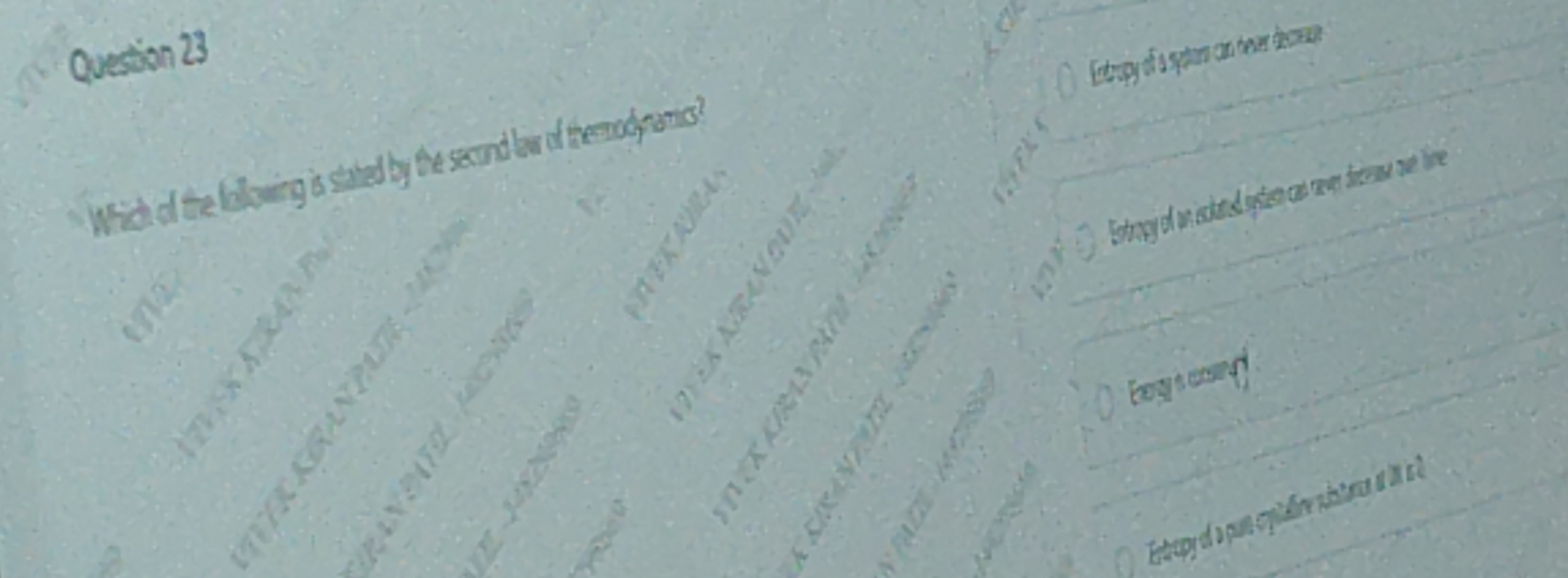Question
Question: Which of the following is stated by the second law of thermodynamics?...
Which of the following is stated by the second law of thermodynamics?

Entropy of a system can never decrease
Entropy of an isolated system can never decrease over time
Energy is conserved
Entropy of a pure crystalline substance is 0 at 0 K
Entropy of an isolated system can never decrease over time
Solution
The second law of thermodynamics deals with the direction of spontaneous processes and the concept of entropy.
-
Entropy of a system can never decrease: This statement is incorrect. The entropy of a system can decrease, provided that the entropy of the surroundings increases by a greater amount, such that the net entropy change of the universe (system + surroundings) is positive or zero for a spontaneous or reversible process, respectively. For example, water freezing into ice at a temperature below 0°C is a spontaneous process where the entropy of the water (system) decreases.
-
Entropy of an isolated system can never decrease over time: This is a correct statement of the second law of thermodynamics. An isolated system is one that does not exchange energy or matter with its surroundings. For any spontaneous process occurring within an isolated system, its entropy will increase. For a reversible process, the entropy of the isolated system will remain constant. Therefore, the entropy of an isolated system can either increase or remain constant, but it can never decrease. The universe is considered an isolated system, so this statement is often rephrased as "the entropy of the universe tends to increase for spontaneous processes."
-
Energy is conserved: This statement describes the first law of thermodynamics, also known as the law of conservation of energy. It states that energy can neither be created nor destroyed, only transformed from one form to another.
-
Entropy of a pure crystalline substance is 0 at 0 K: This statement describes the third law of thermodynamics. It defines the absolute zero of entropy, stating that the entropy of a perfect crystal at absolute zero temperature (0 K) is zero.
Based on the analysis, the second option correctly states a fundamental principle of the second law of thermodynamics.
